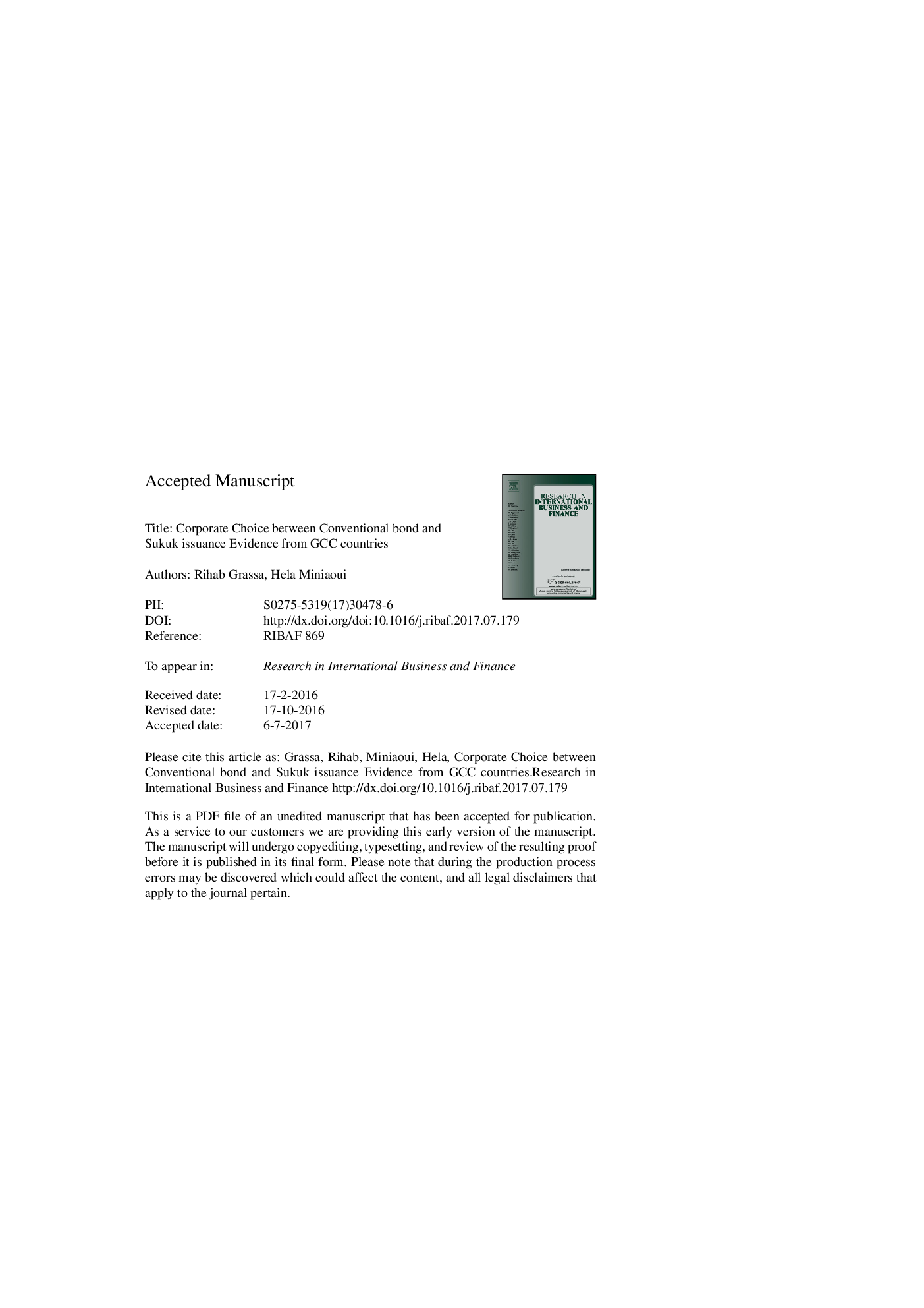| Article ID | Journal | Published Year | Pages | File Type |
|---|---|---|---|---|
| 7413876 | Research in International Business and Finance | 2018 | 31 Pages |
Abstract
Although there have been recent developments in respect of the diversification of capital markets in GCC countries, the motivations of the firms issuing Sukuk or conventional bonds have remained largely unexplored. Using a sample consisting of 88 Sukuk and 287 conventional bonds issued in GCC countries during the period from 2000 to 2015, this paper analyses the factors affecting an issuer's choice of employing an Islamic bond (Sukuk) structure as compared to conventional bonds instruments. The results suggest that there are some significant differences between Islamic and conventional bond issuer's choice determinants; these can be attributed to the Sukuk's specific characteristics and to the issuer's characteristics. Within the GCC region, the firms, which issue Sukuk, have more specific characteristics. By way of contrast, the determinants among those firms, which issue conventional bonds, have fewer specific characteristics. In addition, our findings provide evidence that in respect of the issuance of larger debt and long tenor, firms prefer to issue Sukuk rather than conventional bonds. However, with regard to the quality of the credit rating, our empirical proxies report a positive correlation with the issuance of conventional bonds and a negative correlation with the issuance of Sukuk.
Related Topics
Social Sciences and Humanities
Business, Management and Accounting
Business and International Management
Authors
Rihab Grassa, Hela Miniaoui,
